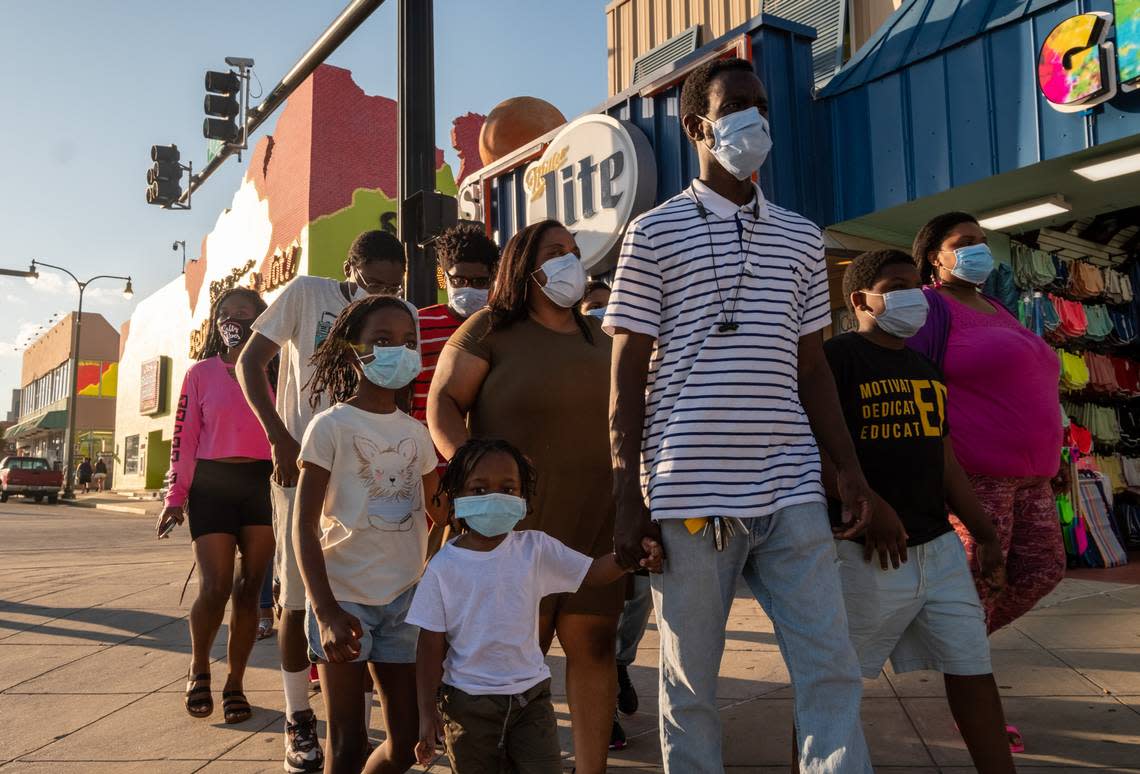What COVID-related rules remain in the Grand Strand? Here’s where each city stands

Spring break is upon us, thousands of South Carolinians are getting vaccinated every day, and many people are itching to get out of town.
However, the coronavirus pandemic isn’t over. Federal, state and local health officials still recommend people wear face masks and keep 6 feet of distance between one another when interacting with others outside your household or going out in public.
“If we’re not careful, we could see another spike, and that’s going to be very problematic, especially with new variants out there,” Edward Simmer, director of the South Carolina Department of Health and Environmental Control, said Thursday. “But I think if we’re careful and people do the right thing here over the next couple months, we should be OK.”
Even those who are vaccinated are still encouraged to wear a mask when going out in public, such as to restaurants, according to guidance from the Centers for Disease Control and Prevention.
Nevertheless, the state of South Carolina and local municipalities in recent weeks have ended many of the remaining COVID-19 health and safety requirements. Here are what rules still remain and what restrictions have ended recently.
“Many of our municipalities still have mask ordinances in place. We encourage them to continue that for now,” Simmer said. “Because I do think that spring break poses a risk, that we’re not out of the woods yet.”
Please note: Borders between municipalities are often unclear, and it can sometimes be hard to tell which jurisdiction you’re in when moving between one city or county and another. The Myrtle Beach Area Chamber of Commerce recommends everyone wears a mask and maintain social distance regardless of where they are in the Grand Strand.
South Carolina
Gov. Henry McMaster last week ended the statewide order requiring customers and employees at restaurants to wear a mask when not eating or drinking. However, masks may still be required at these businesses depending on local laws or individual business policies.
On March 1, the “last call” order banning sales of alcohol at bars and restaurants after 11 p.m. also ended, seven months after it was first implemented.
Conway
Conway requires face masks be worn inside retail businesses and restaurants, except when eating or drinking. Staff who interact with customers are also required to wear them.
Myrtle Beach
The city requires masks in most public areas of businesses, including restaurants. At hotels and vacations rentals, the city limits bellman and valet services to handicapped individuals and people who require assistance because of advanced age. Social distancing is also encouraged on elevators when riding with people from outside of your family or party.
The latest mask rules:
Masks are required in retail businesses and establishments that are open to the public.
Customers and staff are required to wear face coverings at hotel, retail and food businesses.
The requirement doesn’t apply to the beaches.
Exemptions to the order apply, including medical or religious elements that don’t allow for face coverings.
North Myrtle Beach
The city still has a mask requirement, except in restaurants, which it said became a “guideline” after McMaster ended the statewide order last week.
Masks are required in most public places, including retail businesses, salons and grocery stores, except when a mask gets in the way of the service being performed (i.e. haircuts).
Surfside Beach
The Town of Surfside Beach has never had a mask requirement.
“We just request that people continue to attempt social distancing,” town clerk Sheri Medina said in an email.
Georgetown
The city of Georgetown requires masks in all indoor retail businesses and restaurants. Georgetown County requires the public to wear masks that “cover the nose and mouth” while inside businesses. The order covers, but is not limited to, retail, grocery stores, pharmacies and restaurants.
All of the jurisdictions that require masks allow for exemptions for people who have health conditions or religious beliefs prohibiting masks along with people who can’t remove their own mask.

